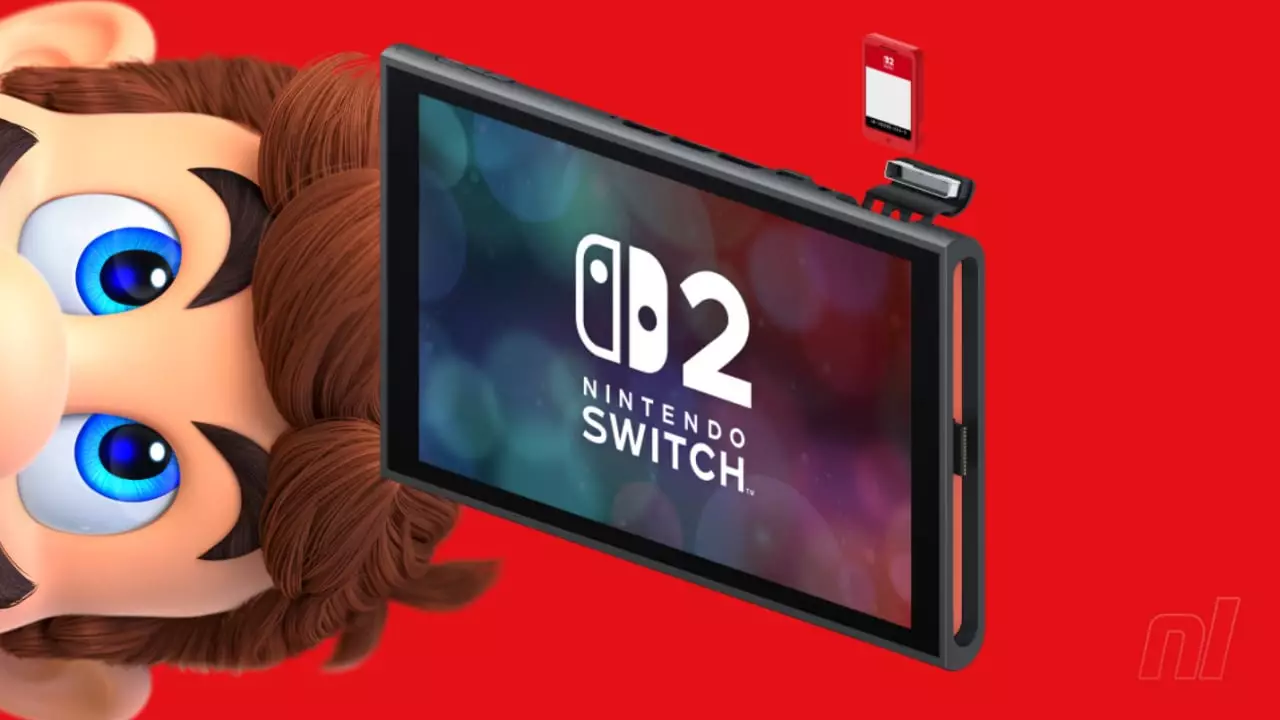When Nintendo revealed their latest console, the Switch 2, it was met with a wave of excitement. Gamers eagerly anticipated innovative features, an enhanced gaming experience, and perhaps an evolution in how physical and digital games are accessed. However, among the high-energy announcements, a more obscure yet concerning development began to surface: the introduction of Game-Key Cards. Described by Nintendo as a new purchase option for “some physical games,” the excitement surrounding this announcement quickly flipped into skepticism as details began to emerge.
The Concept of Game-Key Cards
At its core, a Game-Key Card is designed to be a hybrid model, aiming to bridge the gap between traditional physical media and digital distribution. These cards resemble conventional cartridges, but therein lies the conundrum: they don’t contain full game data. Instead, they merely act as a key to download the complete game from the internet once inserted into the Switch 2 console. The implication here is alarming: players are left with a physical item that essentially acts as a glorified access pass rather than a complete gaming product. The novelty of the cartridge is lost, and what was once a tangible game experience feels diminished.
This development impacts both consumers and developers. While the streamlined download process is indeed convenient, it simultaneously raises concerns regarding ownership and access. Purchasers are essentially paying for a gateway, not a product. With digital marketplaces becoming increasingly prevalent, one must wonder if consumers are overpaying for what Royally resembles a decorative piece of plastic.
The Disadvantages of Game-Key Cards
A critical look at Game-Key Cards reveals a host of drawbacks that could severely impact the gaming landscape. With traditional cartridges, gamers acquired a product that could be traded, sold, or borrowed; a tangible item that represents ownership. The Game-Key Card changes that entire perception. Without the full game data on the card itself, what is the real value of this so-called physical medium? Gamers worried about data loss or server shutdowns will find themselves in a precarious position, relying solely on Nintendo’s digital infrastructure for access to their games.
Moreover, the requirement for adequate free space in the Switch 2’s internal memory or microSD Express card exacerbates the issue. With many users opting for minimal storage due to costs, the chance of genuine access to purchased games becomes a logistical nightmare. Will casual gamers be compelled to invest in larger storage solutions, further complicating an already convoluted landscape?
Potential Benefits: A Silver Lining?
Despite these concerns, it may be prudent to consider potential benefits that could arise if this model is refined and executed thoughtfully. Game-Key Cards could streamline game access for those who might be hesitant to delve into the digital marketplace, allowing for easier transitions between physical and digital collections. The method could help developers reduce costs associated with producing full cartridges, especially for smaller indie games that have limited physical distribution.
However, this argument rests on the assumption that the purchasing consumer will find value in the Game-Key Card’s premise. If a significant portion of the gaming populace finds the notion of having a ‘key’ rather than a complete product unappealing, developers may face a backlash that could affect sales.
The Broader Picture of Physical Media
Ultimately, the introduction of Game-Key Cards is a reflection of the changing dynamics in gaming culture. As more players shift toward digital downloads, traditional markets are forced to adapt accordingly. Yet, instead of innovating toward a model that celebrates the convergence of physical and digital mediums, Nintendo appears to have created an uncomfortable blend that may alienate its fanbase.
As it stands, the product feels like a significant regression in how gaming experiences are delivered. Instead of embracing the excitement of owning a complete physical item, players might find themselves entangled in a frustrating cycle of downloading, storage issues, and questionable ownership. Nintendo has the opportunity to lead the charge toward a new gaming paradigm, but in this instance, they are veering dangerously off course.
In the end, will Game-Key Cards invigorate the gaming experience or merely serve to frustrate devoted gamers? Only time will reveal the true impact of this controversial development in the ever-evolving world of gaming.

